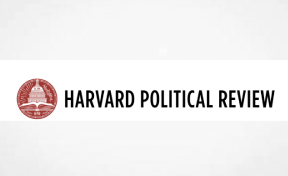From added sugar, to boxing, to nicotine, the United States federal government routinely allows activities that are harmful to health in the name of freedom.
However, there is one consistent exception: drugs.
Demonized, stigmatized, and criminalized, drugs are portrayed as immoral enough to prosecute and imprison Americans merely for possessing them, even in small quantities. For a country that is supposedly built on the notion of unabashed individualism, the American government has routinely abandoned this principle when it comes to illicit substances.
Do drugs really cross the line as to something that the government has a moral right to ban?
Likely, no. The double standard the government places on drugs is unjustly restrictive, and only exacerbates the drug epidemic.
On Individual Agency
To explore the relationship between drug abuse, morality, and the American government, the Harvard Political Review interviewed Jeffrey Miron, a senior lecturer in the economics department at Harvard University. He explained that in determining where to draw this line, Americans ought to consider “whether the actions that the government is considering interfering with have significant, clear adverse effects on other people that [are] costly for them to avoid.”
For example, any American possesses the right to swing their fist at their will. However, that right to swing their fist stops at someone else’s body. Furthermore, Miron explained “[if we’re] talking about things that directly might harm third parties related to drug use and driving under the influence, then that’s a different story, in the same way as for alcohol.”
Therefore, even if drugs were legalized, the direct reckless effects of drug use would likely still be criminalized. For example, the justice system does not punish people for getting drunk in the comfort of their own home, but does punish alcohol use if the consumption of alcohol directly harms someone else, such as when individuals drive under the influence. Drug use should be no different.
Even if it is predicted that legalizing all drugs would catalyze harmful outcomes, the status quo — the current system of drug prohibition — is still an assault on autonomy.
The Black Market
Legal or illegal, people still use drugs and people still die from overdoses. The only delta is that when drug use is stigmatized, it becomes forced into a perilous underground market.
In an interview with the HPR, Kassandra Frederique, the Executive Director of The Drug Policy Alliance, a national nonprofit that aims to put an end to the war on drugs, characterizes that in the black market, “There’s no formalized safety precaution of testing the drugs.”
When someone purchases drugs, they rely on the seller to assure them that the drug is pure and unadulterated. However, in such informal sales, there is no mechanism to ensure that this seller is telling the truth or even knows what the substance is made of. For example, since 2010, overdoses from drugs that are laced with fentanyl have increased by 5,000%, from a mere 0.6% of all U.S. overdoses in 2010 to 32.3% in 2021. This is in large part because 60% of fentanyl-laced fake prescription pills contain a potentially lethal quantity of fentanyl.
Read full article




















